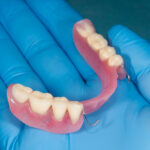How To Avoid Root Canal?
To avoid a root canal, maintain a rigorous dental hygiene routine by brushing twice daily and flossing regularly. Regular dental check-ups can help catch issues early before they escalate.
Preventing a root canal is crucial for maintaining healthy teeth and avoiding painful procedures. The best defense against tooth decay and infection lies in a consistent oral care routine. Brushing your teeth at least twice a day and flossing daily can significantly reduce the risk of cavities.
Additionally, avoiding sugary and acidic foods protects enamel from erosion. Staying hydrated and using fluoride toothpaste also contribute to stronger teeth. Regular visits to your dentist ensure any potential problems are addressed promptly. By adopting these preventive measures, you can maintain a healthy smile and reduce the likelihood of needing a root canal.
The Importance Of Oral Hygiene
Maintaining oral hygiene is essential for healthy teeth. Brushing your teeth at least twice daily helps prevent cavities and decay. Use a soft-bristled toothbrush and fluoride toothpaste. Spend at least two minutes brushing to ensure all areas are clean.
Flossing is equally important. Floss at least once a day to remove food particles and plaque between teeth. This helps prevent gum disease and decay. Use a gentle sawing motion to avoid hurting your gums. Consider using a floss holder if traditional floss is difficult.
Remember, keeping your mouth clean is the best way to avoid root canal treatment. Regular check-ups with your dentist also play a crucial role in maintaining oral health.
Choosing The Right Dental Products
Using the right dental products can help maintain healthy teeth. Fluoride toothpaste strengthens enamel and reduces cavities. It is important to choose a toothpaste with at least 1,000 ppm of fluoride. This level effectively protects against decay.
Mouthwash adds another layer of protection. Look for an alcohol-free option that contains fluoride. It helps in reducing plaque and freshening breath. Regular use can also help reach areas that brushing might miss.
Combining these products with daily brushing and flossing creates a strong defense against tooth decay. Staying consistent with oral care is essential for preventing the need for a root canal.
Dietary Choices For Tooth Health
To maintain good tooth health, limiting sugary snacks and drinks is essential. These items can lead to tooth decay. Choose fruits and vegetables instead. They are healthier and help strengthen teeth.
Avoiding acidic foods is also crucial. Foods like citrus fruits and sodas can erode enamel. This makes teeth more vulnerable to damage. Consider alternatives such as non-acidic fruits or water.
Here’s a quick list of acidic foods to avoid:
| Acidic Foods | Alternatives |
| Sodas | Water |
| Citrus fruits | Berries |
| Wine | Herbal tea |
The Role Of Water In Oral Care
Staying hydrated is crucial for oral care. Water helps maintain proper saliva production. Saliva is essential for washing away food particles and harmful bacteria. It neutralizes acids and protects teeth from decay.
Without enough hydration, saliva becomes thick and less effective. This can lead to an increase in plaque buildup. Drinking plenty of water supports healthy gums and teeth. Regular hydration also helps in freshening breath.
Rinsing your mouth with water after meals can effectively remove leftover food. This simple habit can prevent bacteria from thriving in the mouth. Keeping your mouth clean reduces the risk of dental issues.
Preventing Tooth Damage
To prevent tooth damage, avoid hard and sticky foods. These foods can crack or pull at your teeth. Chewing ice, hard candies, or caramel can lead to serious issues.
Using mouth guards during sports is essential. They protect your teeth from impact and injury. A custom mouth guard fits better and provides more protection than a standard one.
Always prioritize dental health. Regular check-ups help catch problems early. Practice good oral hygiene at home. This reduces the risk of needing a root canal.
Regular Dental Visits
Regular dental visits are essential for maintaining healthy teeth. Professional cleanings help remove plaque and tartar. This reduces the risk of cavities and gum disease. Dentists can spot potential issues early. Early detection can save a tooth from needing a root canal.
During a cleaning, the dentist examines your teeth closely. They may take X-rays to check for hidden problems. Catching issues early is key to avoiding serious procedures. Make sure to schedule your dental check-ups at least twice a year.
Consistent care leads to a healthier smile. Encourage children to understand the importance of dental hygiene. Teach them to brush and floss daily to prevent decay.
Natural Remedies And Their Effects
Natural remedies can play a significant role in promoting gum health. Many people use herbs like clove oil and turmeric for their anti-inflammatory properties. These herbs help reduce swelling and pain in gums.
Another popular method is oil pulling. This ancient practice involves swishing oil in the mouth. It can help remove bacteria and improve overall oral health. Pros include fresher breath and healthier gums. On the downside, it may take time to see results.
| Method | Pros | Cons |
| Herbs | Anti-inflammatory effects | May not work for everyone |
| Oil Pulling | Removes bacteria | Takes time to see results |
Understanding Alternative Dental Treatments
Pulp capping is a dental procedure aimed at treating severe tooth damage. It can help prevent a root canal or extraction. During this process, a special material is placed directly on the exposed pulp. This material protects the pulp and promotes healing.
The GentleWave Procedure offers another alternative. It uses advanced technology to clean and disinfect the tooth. This method is less invasive and may reduce discomfort. Patients often experience quicker recovery times with this procedure.
Both options provide ways to avoid traditional root canals. Consulting a dentist is essential for personalized advice. Regular check-ups and good oral hygiene are crucial for maintaining dental health.
Frequently Asked Questions
Is It Possible To Avoid A Root Canal?
Yes, it is possible to avoid a root canal. Maintaining good oral hygiene, regular dental check-ups, and treating dental issues promptly can help. Procedures like direct pulp capping may also prevent the need for a root canal. Always consult your dentist for personalized advice.
Is There An Alternative To A Root Canal?
Yes, alternatives to a root canal include direct pulp capping, pulpotomy, pulpectomy, tooth extraction, and dental implants. Consult your dentist to determine the best option for your situation. Prompt treatment can help preserve your tooth and overall dental health.
Can You Naturally Heal A Tooth That Needs A Root Canal?
No, a tooth needing a root canal cannot heal naturally. Infected tissue inside the tooth will worsen without treatment. Seeking professional dental care is essential, even if there’s no pain. Ignoring the issue can lead to more severe complications over time.
Conclusion
Taking proactive steps can significantly reduce the risk of needing a root canal. Prioritize your oral hygiene by brushing and flossing regularly. Maintain a balanced diet and avoid sugary snacks. Regular dental check-ups are essential for early detection of issues.
With these strategies, you can keep your smile healthy and vibrant.




